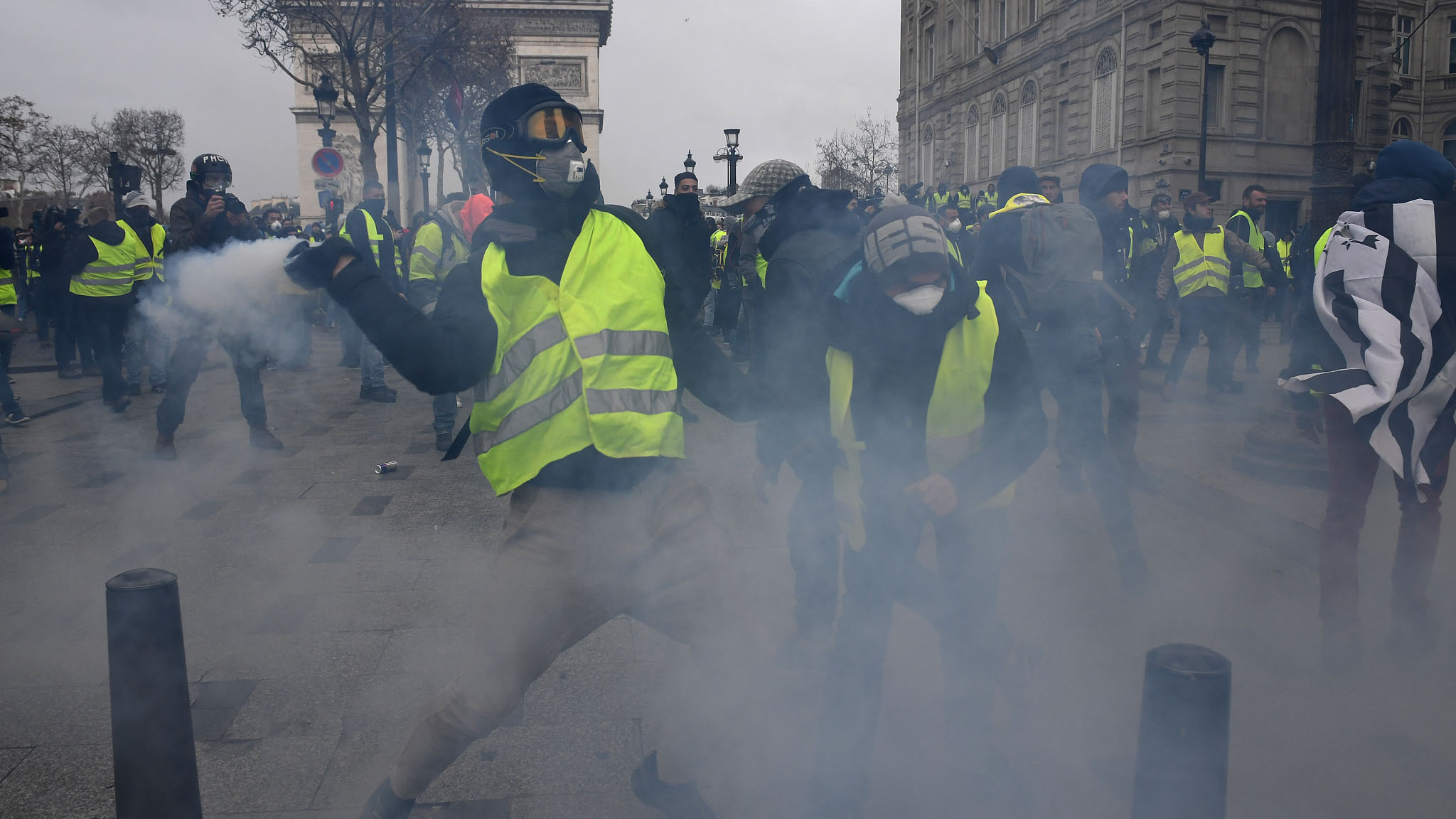Macron to address French nation on 'yellow vest' protests

Amid loud calls for him to end the "yellow vest" crisis gripping France, President Emmanuel Macron will address the nation Monday evening as authorities count the cost of weeks of anti-government protests.
Hours before that, he will meet with trade unions, employers' organizations and local elected officials as he tries to formulate a response to an unstructured movement that has taken France by storm and broken through traditional political and trade union communication channels with the government.
On Sunday, workers in Paris and other cities swept up broken glass and towed away burnt-out cars while the government warned of slower economic growth and the judiciary said it would come down hard on looting and attacks on police.
On Saturday, protesters, for the fourth weekend in a row, threw stones, torched cars and vandalized shops and restaurants in a protest against Macron's economic policies.
Officials said the latest riots were less violent than a week earlier, with fewer people injured, but damage to property across the capital was far worse.
Labour Minister Muriel Penicaud said on LCI television Macron that will announce “concrete and immediate” measures, but they will not include boosting the minimum wage.
“Increasing the minimum wage would destroy jobs. Many small businesses cannot afford it and risk going bankrupt,” she said.
Government spokesman Benjamin Griveaux warned against unrealistic expectations.
“Not all the problems of the yellow vest protesters will be solved by waving a magic wand,” he said.
Demonstrators were unimpressed with the government's overtures, continuing their blockade of traffic roundabouts nationwide and vowing to fight on.
“I will stay here until Easter, if necessary,” a protester called Didier told BFM television in Frejus, southern France.
Macron's last televised address was on November 27, when he said he would not be bounced into changing policy by “thugs.”
Since then, he canceled a planned rise in fuel taxes last Tuesday to try to defuse the situation but the protests have morphed into a broader anti-Macron rebellion.
The upheaval in the Christmas shopping season has dealt a heavy blow to retailing, tourism and manufacturing as roadblocks disrupt supply chains.
On Saturday, the Eiffel Tower and several museums closed their doors for security reasons, as did top Paris department stores on what should have been a prime shopping weekend.
The protest movement will have “a severe impact” on the economy, Finance Minister Bruno Le Maire said as he toured a heavily looted central Paris neighborhood.
“We must expect a new slowdown of economic growth at year-end,” he said.
In mid-November, the central bank had forecast 0.4 percent fourth-quarter growth. Economists said at that time that the economy would need to grow at 0.8 percent in the final three months to hit the government's 1.7 percent annual growth forecast.
Authorities said 136,000 people had taken part in protests across France on Saturday, including 10,000 in Paris. More than 1,709 had been arrested, of which 1,000 were in Paris. More than 100 remained in custody.